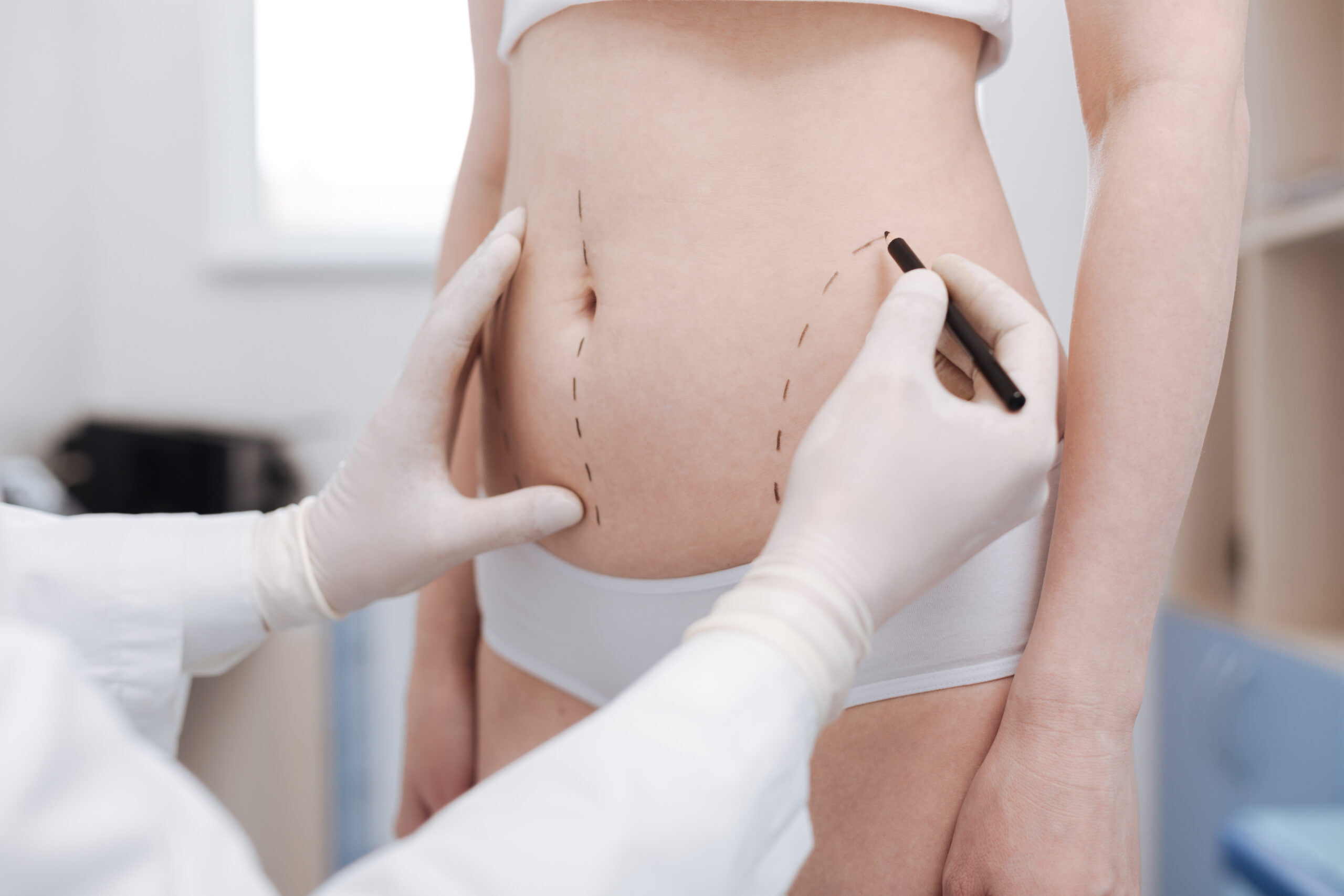Dr. Lee Colony In: Tummy Tuck

A tummy tuck, also known as abdominoplasty, is a procedure performed to eliminate excess skin and fat from the abdominal region, as well as tighten weakened or separated abdominal muscles for a slimmer, more toned midsection. While this is a popular procedure among both men and women, there are some things you should understand regarding weight gain and loss before and after this procedure, and how this can affect results.
Pre-Tummy Tuck Weight Gain
One thing that doctors must consider during a tummy tuck consultation is whether the patient is at a good body weight for abdominoplasty surgery. Most surgeons agree that the ideal surgery candidate has a BMI of 30 or below. And while some surgeons may operate on those with a BMI as high as 39, most will not operate on those with a BMI of 40 or above. If you have a high BMI, your surgeon may advise that you reach a lower, more stable weight before surgery is performed. This is because those with a lower, more stable weight experience better recovery results and can sustain a healthy weight and lifestyle over time. Also, patients with a lower BMI will often achieve better, flatter tummy tuck results. This is because with less visceral or internal fat in the abdomen, your surgeon is better able to tighten your abdominal muscles and repair any diastasis or muscle separation.
Post-Tummy Tuck Weight Gain
While minor weight fluctuations (10-15 pounds) should not significantly impact your tummy tuck results, excessive weight gain can. Weight gain over 15 pounds following a tummy tuck can cause the abdominal skin and muscles to stretch, resulting in a belly bulge. If you continue to gain weight following your procedure, you may require a tummy tuck revision in the future. However, your doctor will not recommend a revision unless you stick to a healthy lifestyle so that you can enjoy your results for years to come.
Post-Tummy Tuck Weight Loss
As with significant weight gain following a tummy tuck, substantial weight loss can also impact your results. While losing a couple of pounds should not be a problem, extreme weight loss can impact results. With drastic weight loss, excess skin on the abdomen may become an issue, and a revision tummy tuck may be required. This is why we advise patients to be at or near their goal weight before their tummy tuck surgery, so further revisions are not needed in the future.
Maintaining Your Figure During Tummy Tuck Recovery
After your tummy tuck, it is important that you eat plenty of lean protein, whole grains, vegetables and fruits, and healthy fats. A healthy, balanced diet is vital to a quick recovery and maintaining your weight. Once you are fully healed, you should also continue with an exercise program that will keep you healthy, active, and fit for prolonged results.
Schedule a Consultation
If you are interested in learning more about the tummy tuck procedure and if you are an ideal candidate, contact Michigan Plastic Surgery® today via phone at 517-333-4960 or through our website. Your first step will be to schedule a consultation appointment with Dr. Lee H. Colony to get started.
Meet Dr. Lee H. Colony, M.D., F.A.C.S., a renowned Board Certified plastic surgeon known for his expertise in aesthetic plastic surgery. As a respected national speaker and educator, his dedication to patient safety and involvement in esteemed medical societies highlight his exceptional skills.
